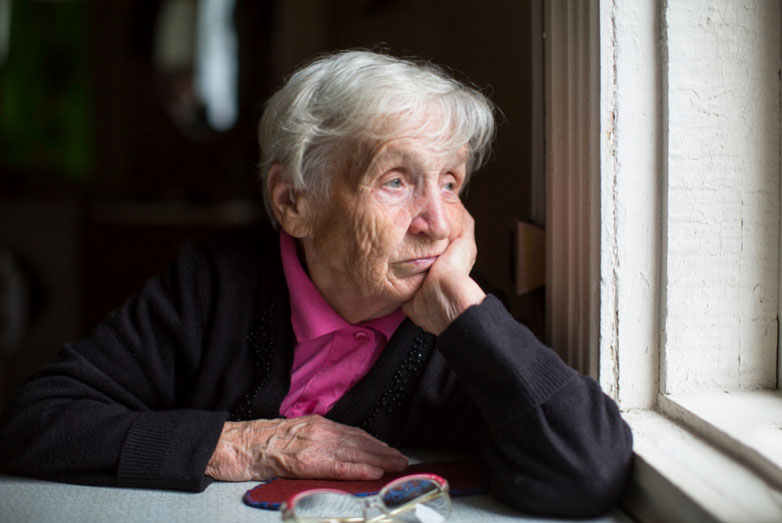Certain factors put seniors at a greater risk of social isolation, such as the death of a spouse, or the loss of their driver’s license. Luckily, there are certain things you can do to help prevent senior social isolation.
According to the last U.S. Census Bureau, 11 million seniors lived alone—that’s 28% of people 65 and older. There are more seniors than ever before and yet this generation of seniors is becoming increasingly isolated. Here are 5 facts about senior social isolation you need to know, plus tips to help prevent it from happening to your loved ones.
Facts About Senior Isolation
1. The more isolated seniors are, the higher their likelihood of death.
The more time you spend with grandma and grandpa the longer they live. The opposite is true too—socially isolated seniors have higher death rates. According to one study cited by Independa.com, researchers observed 6,500 men and women ages 52 and up over a period of seven years. What they found was higher mortality rates amongst socially isolated seniors.
2. Senior social isolation leads to increases in mental & physical health issues.
Humans need physical contact and socialization to remain healthy both physically and mentally. Depression is a form of mental illness that doesn’t naturally impact elderly generations. In fact, depression tends to go down the older people get it… unless isolation is a factor. When social contact becomes limited it’s only normal to feel isolated and lonely, which ultimately leads to feelings of depression.
3. Social isolation may increase risk for elder abuse.
The National Center on Elder Abuse cites several studies that have drawn relations between elder abuse and social isolation. Researchers are unsure if this is because isolation makes seniors more vulnerable to isolation, or if elder abusers are to blame for purposely isolating their victims to gain more control.
4. LGBT seniors are more likely to face social Isolation.
According to SAGE, LGBT seniors are 2x as likely to live alone and thus suffer from senior social isolation.
5. Social isolation leads to an increased risk for high blood pressure.
High blood pressure can lead to all kinds of health issues and socially isolated seniors are more likely to develop the problem in the first place. One study found a direct link between older adults who expressed feeling lonely and increased systolic blood pressure over a period of four years. Increases in blood pressure were documented in relation to loneliness regardless of gender, race, socio economic status, and other potentially influential factors.
Tips to Reduce Senior Social Isolation
Keep an Open Dialogue
Talk to your mom, dad, grandma or grandpa and see how they feel about their current lifestyle—is it socially fulfilling or do they feel isolated? Keep in mind, your own ideas of a good social life may vary considerably from theirs.
Take Turns Visiting
Set up a schedule with family and friends so that everyone doesn’t visit at the same time and then leave large gaps of isolation in between. Spread apart visits amongst family and friends so someone is there on a regular basis.
Adopt a Pet
Consider getting a pet for healthy seniors who can properly care for an animal. Instead of a kitten or puppy, consider adopting a dog or cat from an animal shelter so that it’s already trained to live in a house.
Consider an In-home Caretaker
A caretaker can offer much-needed companionship while helping seniors maintain a safe and more independent lifestyle in their home.
Enroll in Local Senior Programs
Find local senior programs for your loved one to attend on a regular basis. Many local services offer round-trip transportation to and from events.
Book a ride with Stellar Transportation
Need a ride? We’ve got you covered! We offer local and long distance non-emergency medical transportation for seniors in Melbourne, FL. Book your ride today and save!

